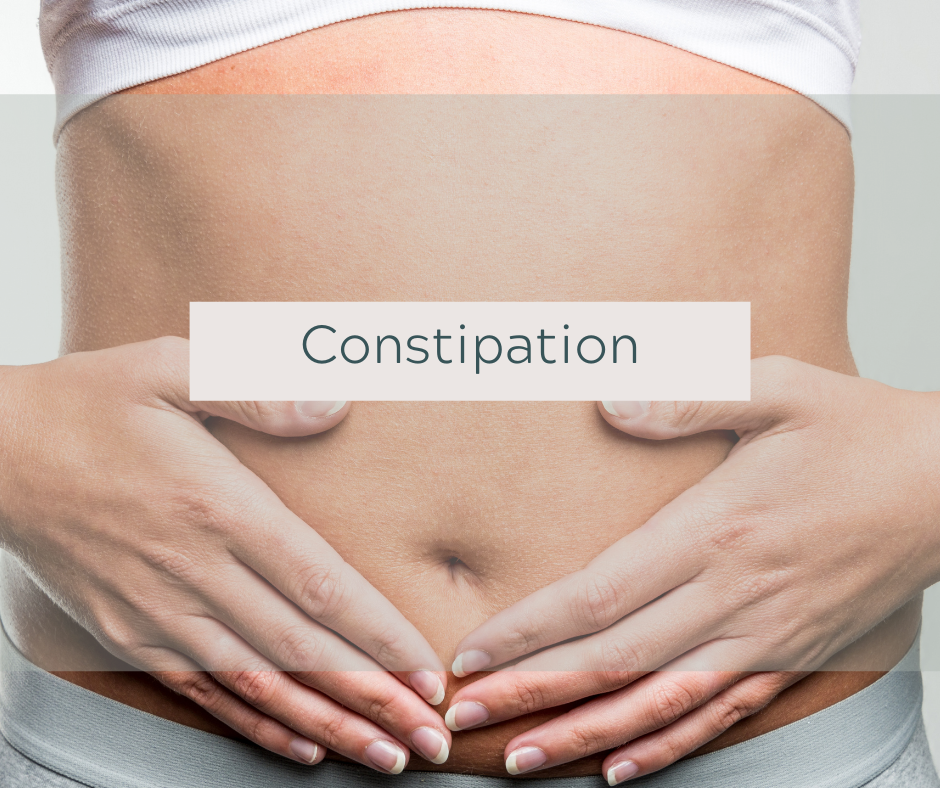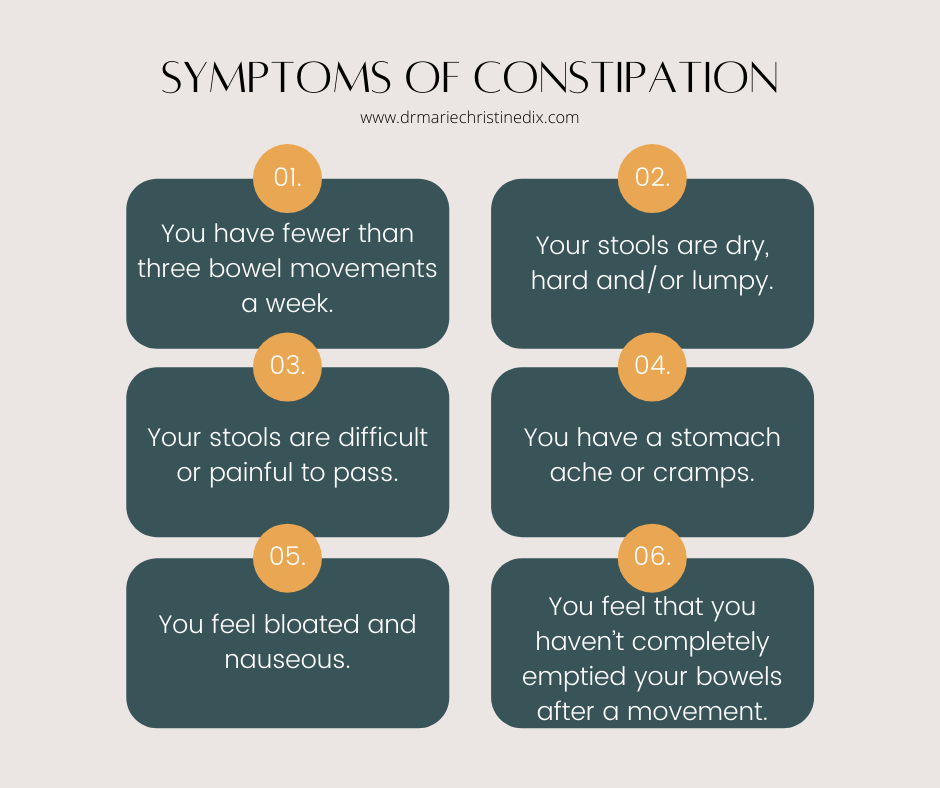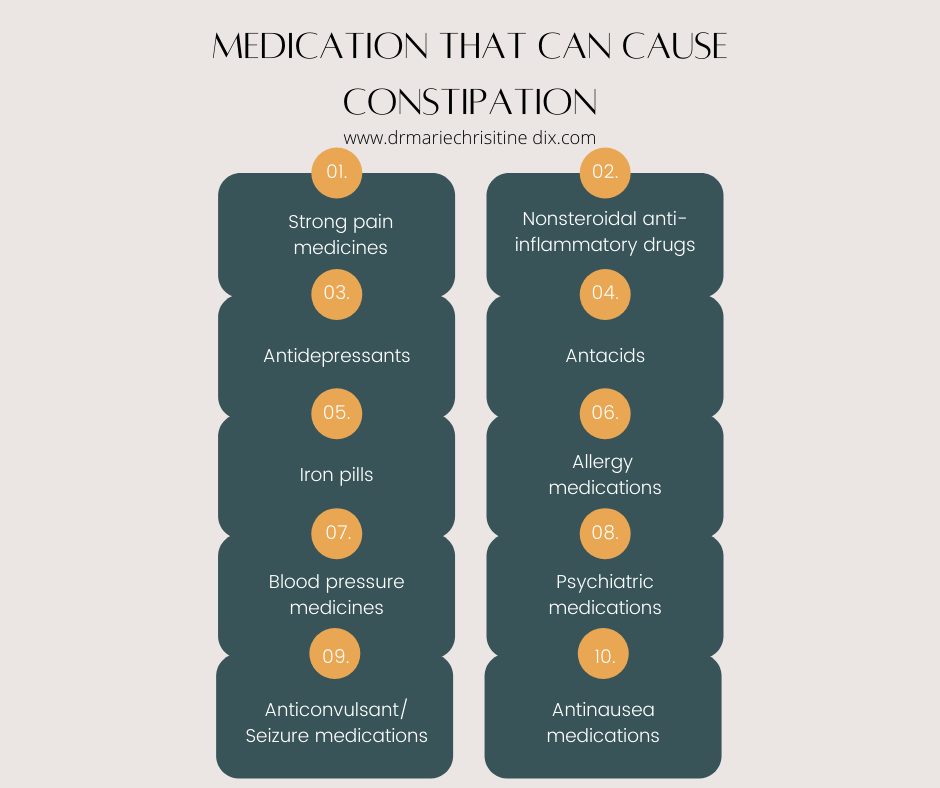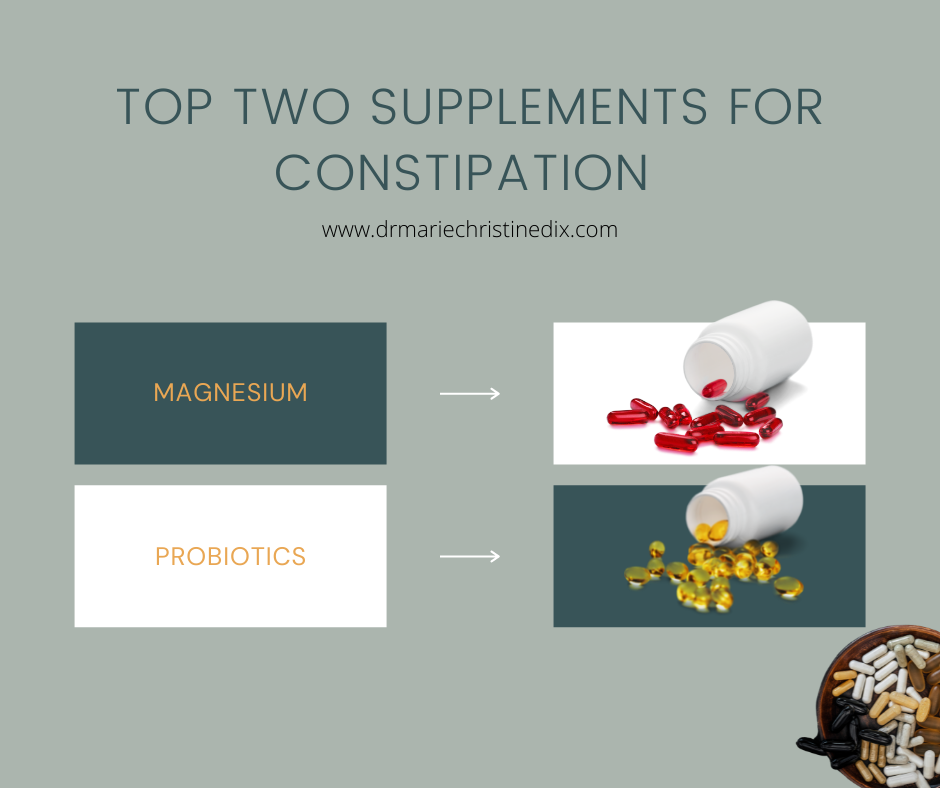Constipation
An Extremely Detailed Guide to solve constipation: Constipation; Symptoms, Causes, Testing, Treatment & Prevention
What is Constipation?
Constipation occurs when bowel movements become less frequent (fewer than three bowel movements a week) due to the colon absorbing too much water from waste (stool/poop), which dries out the stool making it hard to push out of the body.
People often suffer from occasional constipation due to lifestyle habits or changes in their routine or other negative influences on gut health.
Symptoms of constipation:
You have fewer than three bowel movements a week.
Your stools are dry, hard and/or lumpy.
Your stools are difficult or painful to pass.
You have a stomach ache or cramps.
You feel bloated and nauseous.
You feel that you haven’t completely emptied your bowels after a movement.
Chronic constipation is similar but normally it persists for many weeks, and is often linked with pain and/or blood in the stool. If this is you please seek medical attention to discover the underlying cause.
As a doctor of Chiropractic I see regularly how spinal dysfunction can impact bowel function. Let me explain (simply) what the link is between your back and your bowels. Your nervous system (brain and spinal cord) is housed, protected within the spinal column and skull. At each level of the spinal cord a nerve exits, these are called your spinal nerves and make up part of your peripheral nervous system. These nerves travel to your organs, glands, joints and muscles communicating information from the brain to the end tissue and back up again in a feedback loop, not unlike an electricity circuit. Nerve cells in the intestines connect to the spinal cord (and the brain) through the nerve roots that exit the spine in the lower thoracic and upper lumbar region (where the lower ribs join the spine). Pressure on these nerve roots caused by misalignment of the vertebrae in this area may interfere with the normal nerve signalling from the brain to the bowel and back to the brain again. Think of this like a short circuit in an electrical circuit. When nerve signals get disrupted in this region it can lead to dysfunction of the digestive system, causing a host of gastrointestinal issues.
Constipation can cause internal damage to the bowel or lead to other health problems, so ignoring it is not an option. You can end up with conditions like diverticulitis, hemorrhoids and even damage to your pelvic floor muscles.
Not having a regular bowel movement can also cause toxins to build up in your body.
Medical conditions that may cause constipation:
Diabetes
Overactive parathyroid gland (hyperparathyroidism)
Pregnancy
Underactive thyroid (hypothyroidism)
Let’s take a more detailed look on the causes of constipation: (research credit due to https://my.clevelandclinic.org)
According to Cleveland Clinic medications that can cause constipation include:
Strong pain medicines, like the narcotics containing codeine, oxycodone (Oxycontin®) and hydromorphone (Dilaudid®). (UK: Co-codamol, Dihydrocodeine, Tramadol)
Nonsteroidal anti-inflammatory drugs, like ibuprofen (Advil®, Motrin®) and naproxen (Aleve®).
Antidepressants, including the selective serotonin re-uptake inhibitors (like fluoxetine [Prozac®]) or tricyclic antidepressants (like amitriptyline [Elavil®]).
Antacids containing calcium or aluminum, such as Tums® (Gaviscon).
Iron tablets.
Allergy medications, such as antihistamines (like diphenhydramine [Benadryl®]).
Certain blood pressure medicines, including calcium channel blockers (like verapamil [Calan SR], diltiazem [Cardizem®] and nifedipine [Procardia®]) and beta-blockers (like atenolol [Tenormin®]).
Psychiatric medications, like clozapine (Clozaril®) and olanzapine (Zyprexa®).
Anticonvulsant/seizure medications, such as phenytoin and gabapentin.
Anti-nausea medications, like ondansetron (Zofran®).
Many drugs can cause constipation. Ask your doctor or pharmacist if you have any questions or concerns.
According to Cleveland Clinic the following medical and health conditions that can cause constipation are:
Endocrine problems, like underactive thyroid gland (hypothyroidism), diabetes, uremia, hypercalcemia.
Colorectal cancer.
Irritable bowel syndrome (IBS).
Diverticular disease.
Outlet dysfunction constipation. (A defect in the coordination of pelvic floor muscles. These muscles support the organs within the pelvis and lower abdomen. They are needed to help release stools.)
Neurologic disorders including spinal cord injury, multiple sclerosis, Parkinson’s disease, and stroke.
Lazy bowel syndrome. The colon contracts poorly and retains stool.
Intestinal obstruction.
Structural defects in the digestive tract (like fistula, colonic atresia, volvulus, intussusception, imperforate anus, or malrotation.)
Multiple organ diseases, such as amyloidosis, lupus, and scleroderma.
Pregnancy.
Top two supplements for constipation:
Magnesium
One high quality, 28-day study including 34 women with mild to moderate constipation found that taking 1.5 grams of magnesium oxide per day significantly improved stool consistency. Study here.
Probiotics
Imbalance in gut bacteria may contribute to constipation and slower gut transit times. 2014 clinical study shows that the probiotic strain Bifidobacterium lactis was the most effective at relieving constipation (Trusted Source).
Essential oils for constipation:
doTERRA Rosemary + Peppermint essential oil:
Combine 2 drops of doTERRA peppermint and 2 drops of doTERRA Rosemary essential oil with 1 teaspoon of carrier oil. Massage this mixture onto the abdomen 3-4 times a day.
2. Fennel oil and Ginger oils
doTERRA Fennel essential oil is also a digestive stimulant. Use 2 drops add 2 drops of ginger oil and blend together with 1 teaspoon of carrier oil.
Visit my web-shop to get started with medicinal essential oils. Click here.
Healthy Stomach Wellness Kit
Laboratory Testing at my clinic. Discover the underling issues.
Priority testing recommended by Dr. Marie-Christine Dix
GI Effects Comprehensive Stool Profile
The GI Effects Comprehensive Stool Profile can reveal important information about the root cause of many common gastrointestinal symptoms such as gas, bloating, indigestion, abdominal pain, diarrhea, and constipation. This stool analysis utilises biomarkers such as fecal calprotectin to differentiate between Inflammatory Bowel Disease (IBD) and Irritable Bowel Syndrome (IBS). 4,5 In addition, Genovas GI Effects test can be used to evaluate patients with a clinical history that suggests a gastrointestinal infection or dysbiosis.
Gut microbes are codependent with one another and with their human host, and the health of one affects the other. A sizeable volume of research associates a dysbiotic, or imbalanced gut microbiome with multiple disease states both within and outside of the GI tract. The diverse metabolic activities of the microbiome ultimately impact the human host, and the activities of the human host ultimately affect the health of their microbiome.
ENJOY
Sign up for my newsletter here: http://eepurl.com/hBqBdH
Visit my website at:
https://drmariechristinedix.com/gut-health-course-waiting-list













